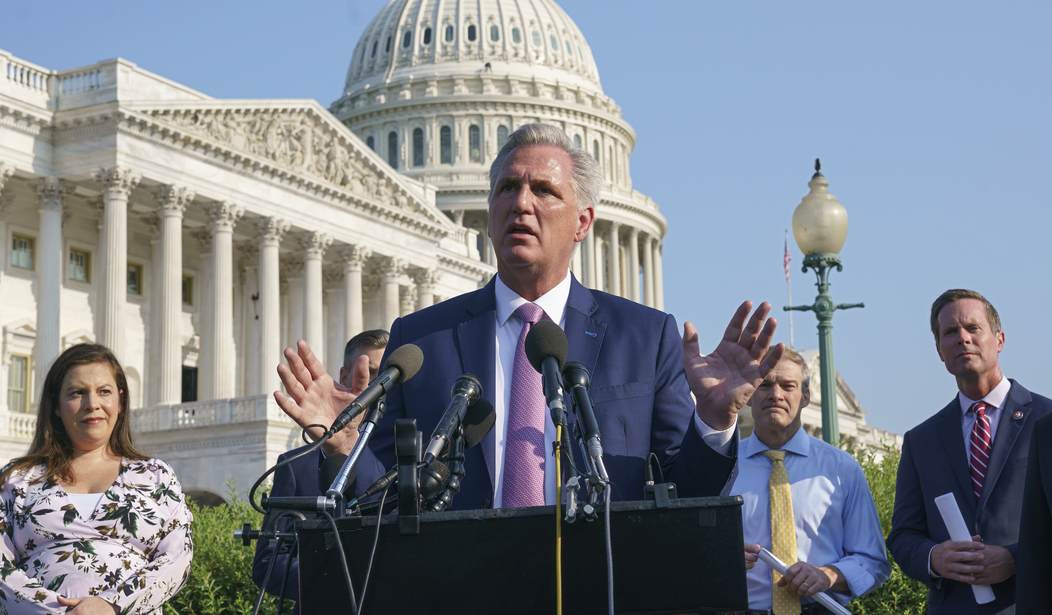Whether the adage, “no matter how bad things are, they can always be worse” is considered an optimistic or a pessimistic outlook, it perfectly fits the current state of the Republican Party.
Even though the GOP’s gains in last month’s midterm election fell well short of predictions, it will, for the first time in five years, have a majority in the House of Representatives when the 118th Congress convenes next January 3rd. Rather than savoring this achievement, the Republican Party is fighting to define itself, its agenda, and even its leadership, both on and off Capitol Hill.
The Party’s leaders and the entire 222-member majority-in-waiting should be busy finalizing membership and chairmanships for each of the House’s 21 committees and putting the finishing touches on its legislative priorities for the coming session.
Were it so simple.
Instead of using these weeks between the election and the convening of the new Congress in January to show the American people the GOP is well-organized and ready to lead the House of Representatives, it is mired in a wasteful internal fight about who is to lead the effort.
California Republican Kevin McCarthy has led his conference for nearly a decade as both its Majority Leader from 2014 to 2019 and as Minority Leader since 2019. Until last month, McCarthy has been considered the clear favorite to be awarded the Speaker’s gavel in January. Apparently, however, McCarthy’s long history of leading his colleagues in the House, including raising huge sums for its candidates is, in the eyes of the far-right Freedom Caucus, an inadequate resume from which to serve as Speaker.
Instead of uniting behind McCarthy so as to position itself to control the agenda in the House for the next two years, and thereby lay the groundwork for expanding its majority and winning the presidency in 2024, the GOP is fracturing internally in a manner that will benefit not itself but the Democrats (who seem far more cognizant of the need for party unity, especially when operating with a thin majority).
Recommended
To resurrect a theme I recall hearing in 1999, when the House GOP majority of which I was a member stood at a delicate 223 (only one more than the number of Republicans who will serve in the 118th Congress), making “the perfect the enemy of the good,” is not a recipe for obtaining either “perfect” legislation or even “good” results.
Regarding its planned majority agenda, he GOP appears poised to use the oversight power of the majority to investigate the past -- meaning, for example, the time-worn Hunter Biden “laptop” saga -- rather than for its proper purpose of ensuring that Executive Branch agencies are structured to follow, and actually are following the laws and regulations as they are supposed to.
Adding to all this internal messiness is a brewing battle outside the strict confines of the Congress, but certainly affecting its Members: a fight over the leadership of the Republican National Committee. While primarily serving as the fund-raising arm of the GOP, the RNC plays an important role in providing the organizational foundation for local and state Republican groups across the country. Its chair (currently Ronna McDaniel) is the de facto “face” of the Party for media purposes.
Not surprising, former President Trump and his supporters figure heavily in all these skirmishes, both within the House caucus and at the RNC.
Just this week, for example, Trump acolyte Mike Lindell, an oft-quoted 2020 election “denier,” announced he will challenge McDaniel (herself a Trump supporter) for chair of the RNC in January.
While new leadership at the RNC clearly is needed in order to pivot the Party to a winning and forward-focused strategy for 2024, keeping McDaniel at its helm or elevating the “My Pillow” CEO to head the RNC would be doubling down on the past.
Today’s Republican Party is blessed with an extremely strong bench of young movers and shakers, including governors like Ron DeSantis, Glen Youngkin, Brian Kemp, and Kristi Noem, along with credible state candidates like former New York Rep. Lee Zeldin.
If the GOP decides to simply “stay the course” with its current RNC leadership, or worse, turn to a pillow huckster and election denier as its standard bearer heading toward 2024, it will be greatly reducing its chances to win major victories in two years.
Bob Barr represented Georgia’s Seventh District in the U.S. House of Representatives from 1995 to 2003. He served as the United States Attorney in Atlanta from 1986 to 1990 and was an official with the CIA in the 1970s. He now practices law in Atlanta, Georgia and serves as head of Liberty Guard.

























Join the conversation as a VIP Member